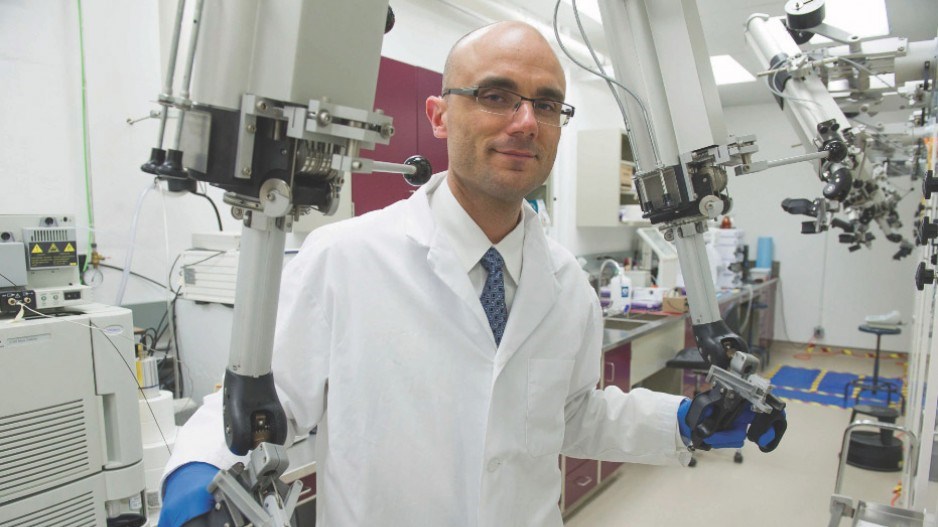Radioactive isotopes are known for the energy they emit.
Until recently ARTMS Products Inc., a B.C. firm specializing in technology that produces the technetium-99m medical isotope, was not generating much energy in terms of business prospects.
“There was a couple of years where the company was stagnant and it was sitting within Triumf,” CEO Paul Schaffer said, referring to the national particle accelerator centre from which ARTMS spun off.
But the company has become re-energized over the last five months, signing deals with European medical facilities and a U.S. industrial giant, as well as landing a US$3 million seed funding deal to help it pursue business in China.
ARTMS (pronounced like Artemis, the Greek goddess of the hunt) was spun off from Triumf in 2010 with the goal of solving a global shortage of medical isotopes, which are used in diagnosing cancer and cardiac conditions.
The global supply of medical isotopes relied on production from a nuclear reactor in Chalk River, Ontario, which produced a large quantity of a parent isotope that decayed over time to form the medical isotope.
As the costs of maintaining the reactor grew, the Canadian government halted production. That opened the door for ARTMS to use research from Triumf for commercial ventures.
Instead of a nuclear reactor, ARTMS has been developing hardware allowing an SUV-sized particle accelerator known as a cyclotron to produce medical isotopes.
These cyclotrons are found in most urban hospitals.
“Our idea was to do that at a smaller scale and decentralize the production, which was then to offset or allay any potential widespread outages in the future,” Schaffer told Business in Vancouver.
Last month ARTMS installed a system for a customer in Switzerland and announced it had raised US$3 million in seed funding from Quark Venture Inc., a US$500 million global venture fund based in Vancouver and backed by Chinese investment bank GF Securities Ltd.
In August 2017, it installed a system in Denmark and announced a partnership with GE Healthcare to supply it with the hardware needed for producing the isotopes.
“They went from being, ‘Oh, that’s a cool idea. Not sure if it’ll work out,’ to now they’ve got customers and installations and venture funding,” said Triumf Innovations CEO Kathryn Hayashi, who runs the national laboratory’s commercialization arm.
“It really seems like it’s going to be a business. We’re very proud and excited about that.”
Triumf Innovations is finalizing funding for a new facility that Hayashi said “really shows how serious we are about medical isotopes as our future.”
The Institute for Advanced Medical Isotopes will focus on medical isotope development on the Triumf site.
“And it is intended right from the beginning to have both university research partners and industry partners as part of that picture,” Hayashi said.
Meanwhile, after a few years of stagnation, Schaffer said, ARTMS is planning for major expansions over the next two years.
This month Schaffer is asking the board to add four permanent employees to its roster – currently there are two permanent employees and three members of a transitional management team – as it anticipates rolling out six more systems before the end of the year.
ARTMS plans to install 12 systems in 2019 and 24 in 2020.
The seed funding will be used to expand into the Chinese market, aided in part by the team at Quark.
“We know the technology inside out and backwards but don’t know the market. And I think the pairing is going to result in a quite potent partnership in China,” he said.
“Ironically we don’t have any systems in Canada other than the ones that are at the original sites in Vancouver and London and Hamilton, Ontario. But we are in discussions with health-care … [buyers] in B.C., and we’re trying to get that discussion going in Ontario.”




